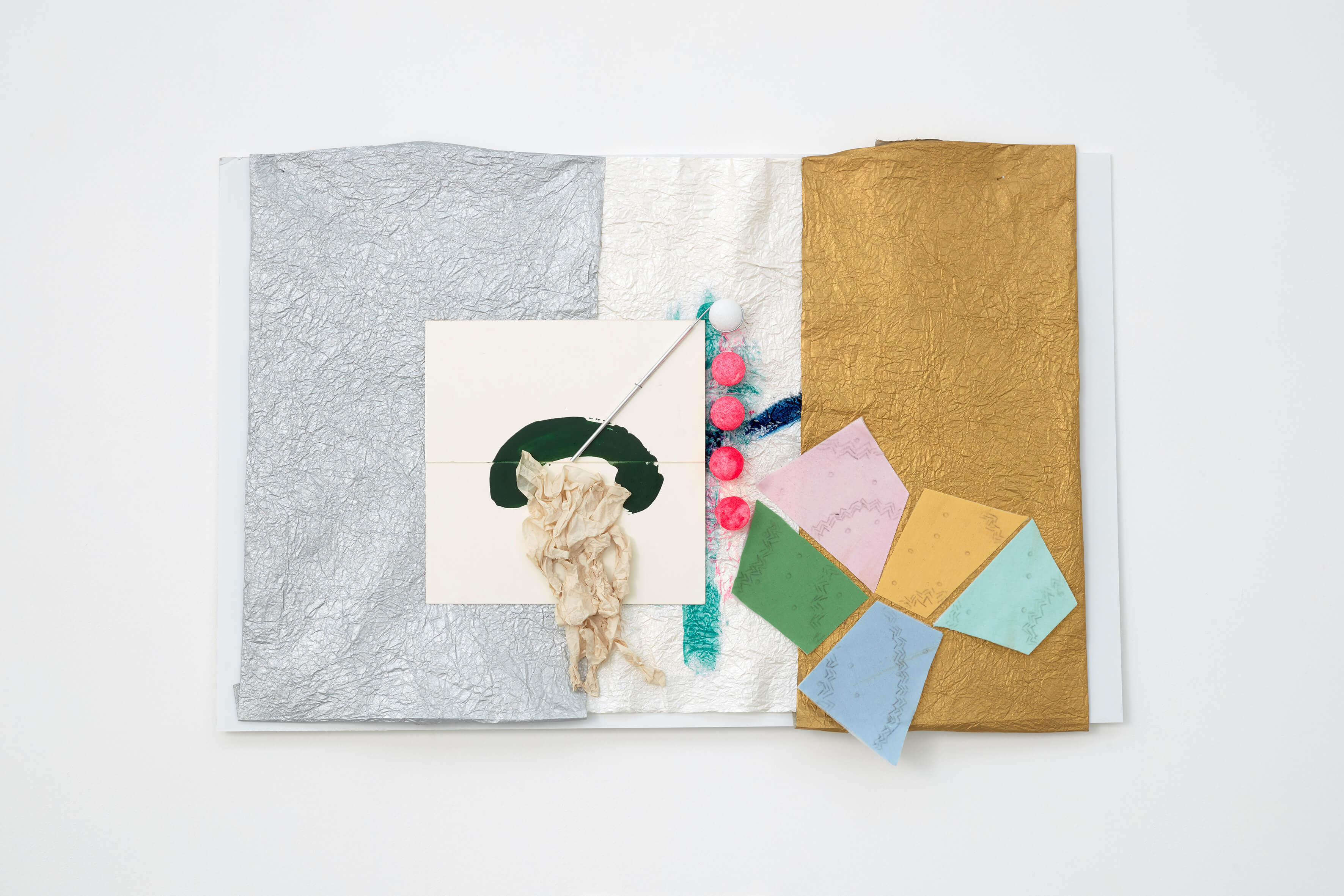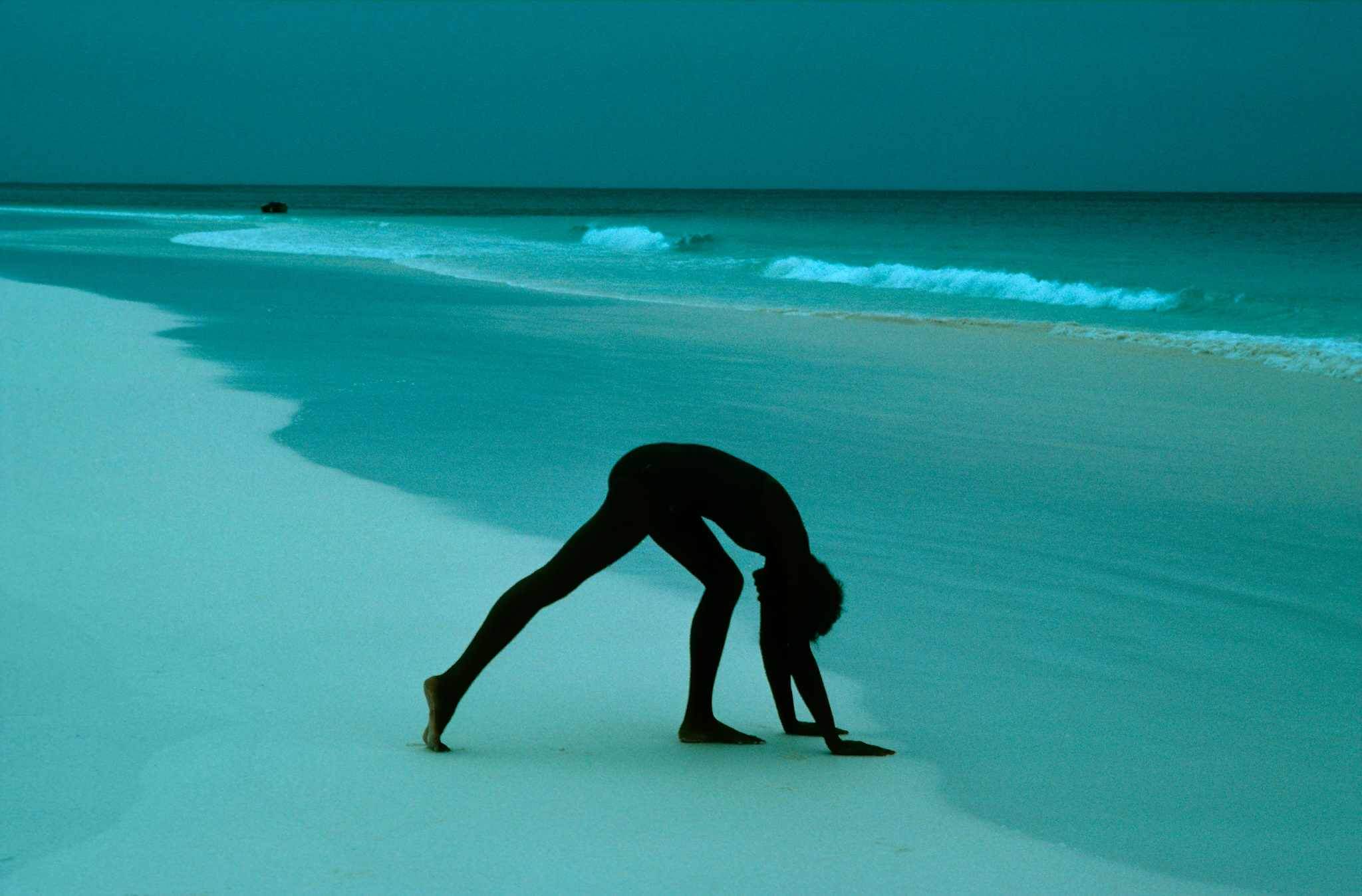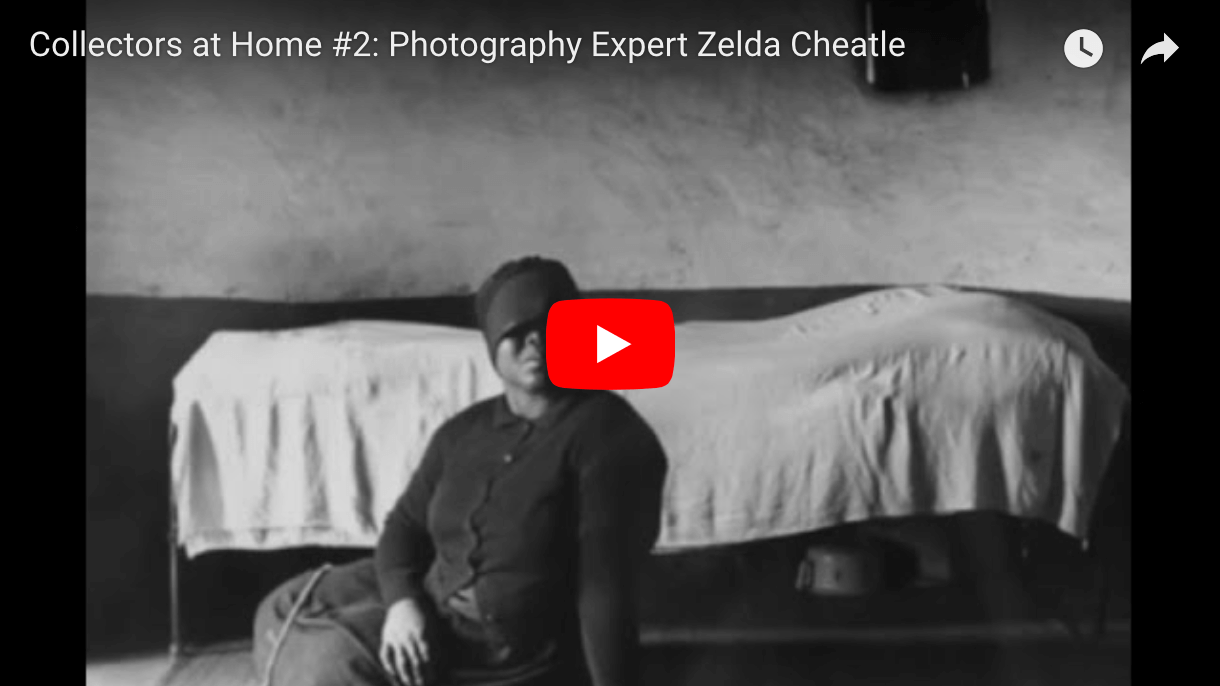Following two major exhibitions by Richard Tuttle in London in 2014, Tate Modern’s commission of a large textile sculpture for its monumental Turbine Hall and Whitechapel Gallery’s retrospective of the artist’s career from the 1960s, you can enjoy two new coinciding exhibitions until May 13th. The Critical Edge at Pace London and My Birthday Puzzle at Modern Art focus on textile and mixed-material assemblages respectively.
Tuttle’s works are transformations of humble materials into propositions that present ideas of volume, balance, texture and order and yet encapsulate their counterpoint with flatness, instability, irregularity and capriciousness. These compositions tantalize materiality with a light and airy touch.
Tuttle’s materials are nothing to be noted. They are not extraordinary, abject or even rejects. The pieces of tissue, coloured papers, the odd cardboard and fabric scraps are mundane, ignored, left-aside-to-be-reused and simply forgotten. Instead, Tuttle looks into these materials not as a support for paint but for their intrinsic qualities. Papers and textiles flare and hang giving away a weight and a surface quality, the architecture of the weave and its combination of delicacy and resilience. Small cut-out papers, pieces of metal wire and polystyrene balls are arranged into poised compositions which equally suggest chance and malleability.
“Making pictures is a tool for life. Life is so much more important than art. But then art’s importance comes when it is a tool for life; when it makes life more available for us.”
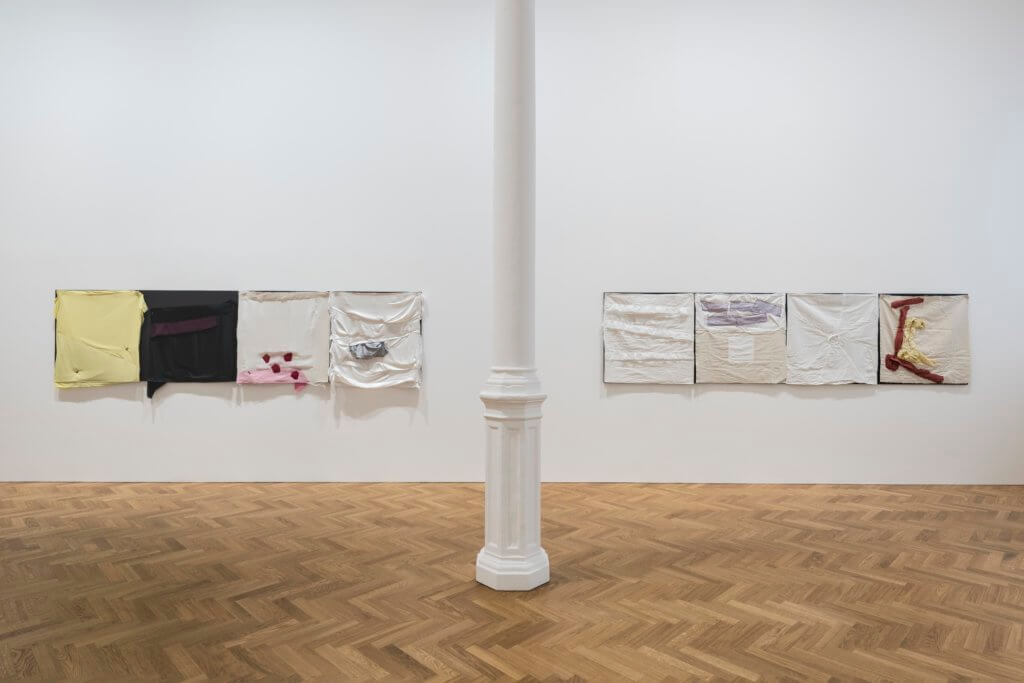
from left: The Critical Edge IV, #61901, The Critical Edge VI, #61903
Photograph by: Damian Griffiths
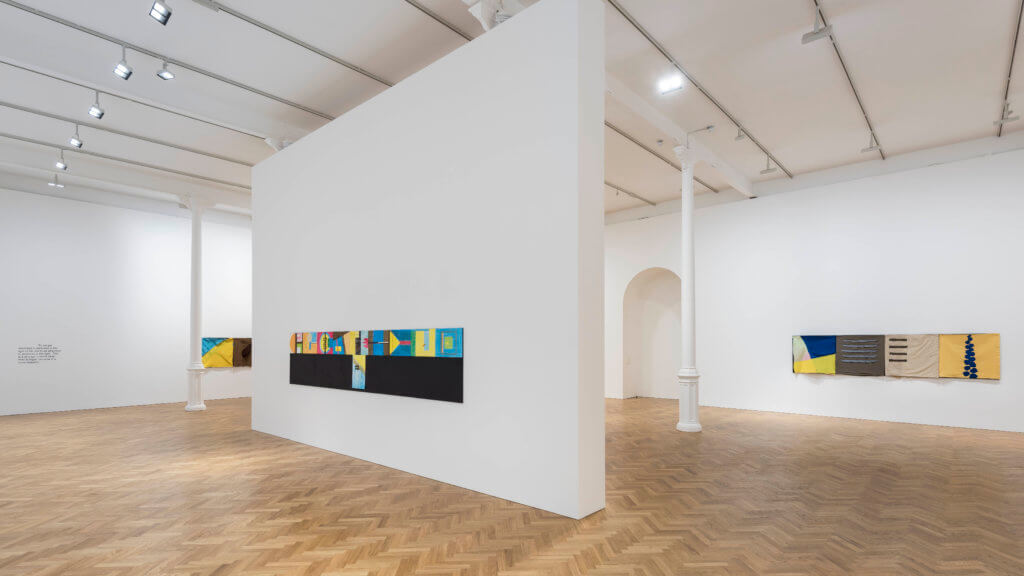
from left: The Critical Edge V, #61902, The Critical Edge VII, #61904, The Critical Edge II, #61899
Photograph by: Damian Griffiths
There is no narrative in these abstract assemblages of modest materials. The titles hint at hermetic conceptual constructs with a strong physicality. It is little surprising that Tuttle works with poets and creates book works. The Critical Edge, is evocative in its openness. Critical as acute, dire and severe material cut; the physical Edge. It also alludes to the artist’s vantage point; his take as a collector of fabrics and how textiles exude cultural and historical references in their designs, production and function.
The works’ titles of My Birthday Puzzle indicate a more active role on the part of the artist or the materials involved. However cryptic, the use of words like Pressing, Head, Releasing, Biologically are suggestive of physical processes. Although this hermetic use of words could be interpreted as a code for viewers to navigate, one can always choose to flirt freely with the poetics of correlations and dissonances between textures, between the rigid and the flexible, the ragged and the precise; the associative resonances of colour; the sequences of marks and lines; the textile’s woven structure of repetition and pause, the hard-edged stitch against a fabric’s silky twist; the scale of fragments versus their powerful sensorial potential.
It is always a wonderful choice to have. Deconstructing the syntax of Tuttle’s objects and relishing the sensual pleasure of materials.
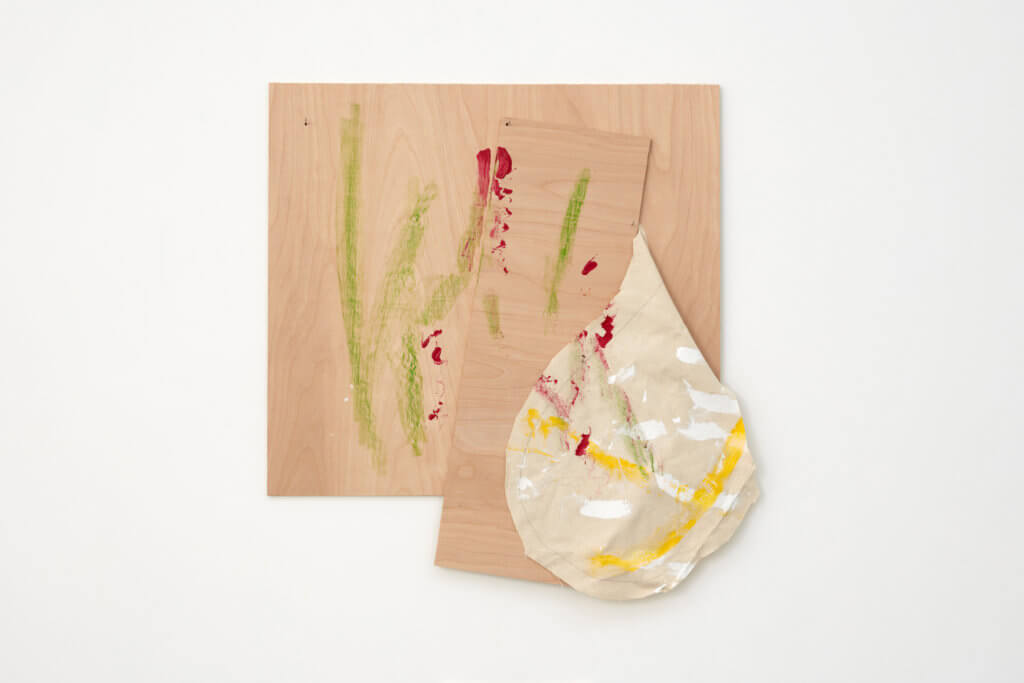
quarter-inch birch plywood, canvas, crayon, acrylic, graphite, acrylic gesso, nails
68.6 x 66 x 3.5 cm, 27 1/8 x 26 x 1 3/8 ins
Courtesy Stuart Shave/Modern Art, London
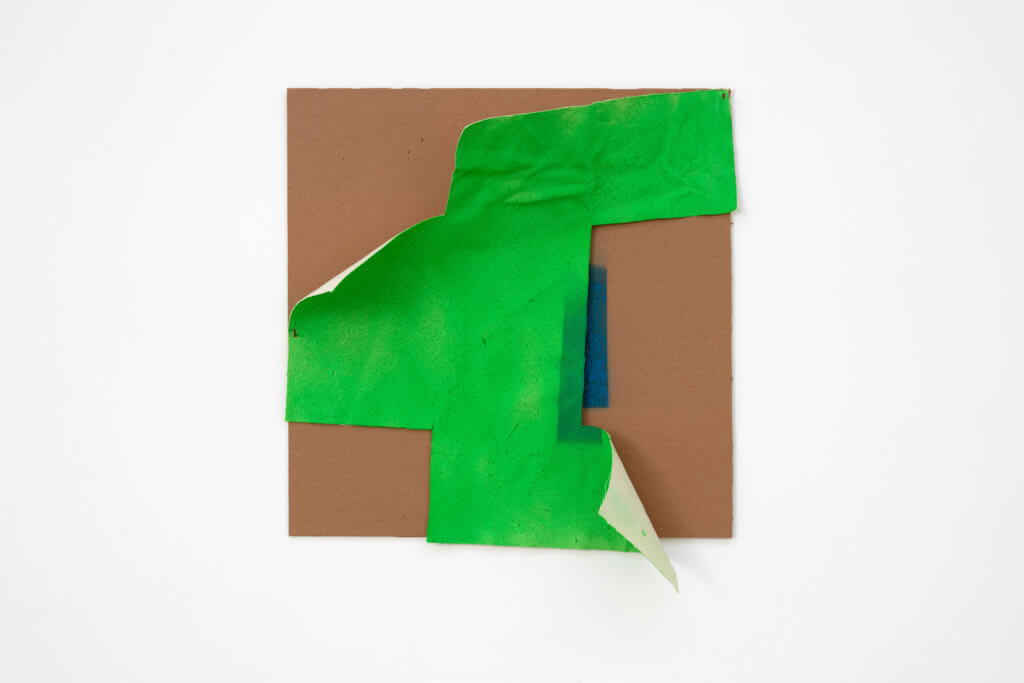
corrugated cardboard, canvas, spray paint, nails
45.7 x 45.7 x 16.5 cm, 18 x 18 x 6 1/2 ins
Courtesy Stuart Shave/Modern Art, London
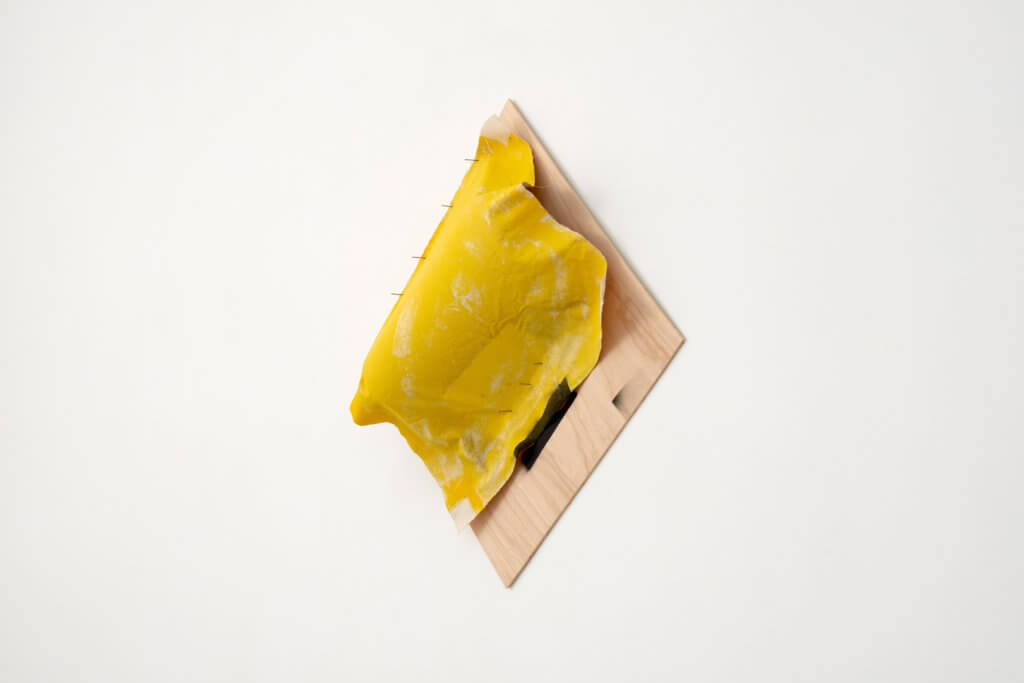
quarter-inch birch plywood, aluminum flashing, canvas, graphite, acrylic, spray paint, nails
86.4 x 86.4 x 15.9 cm, 34 1/8 x 34 1/8 x 6 1/4 ins
Courtesy Stuart Shave/Modern Art, London
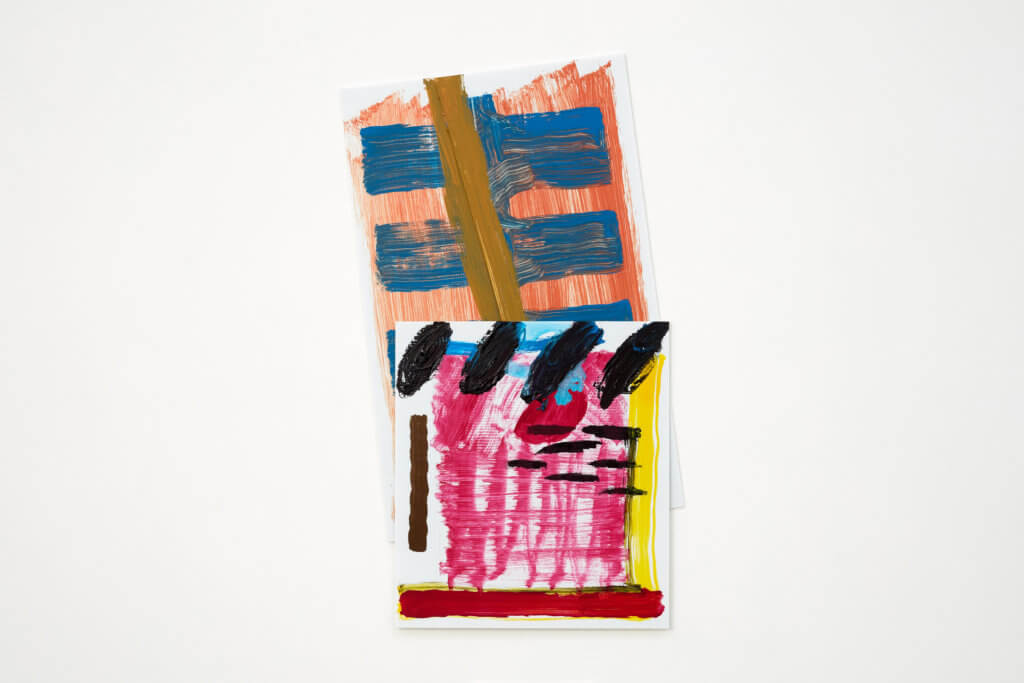
coroplast, acrylic, graphite, nails
96.5 x 59.1 x 3.2 cm, 38 x 23 1/4 x 1 1/4 ins
Courtesy Stuart Shave/Modern Art, London
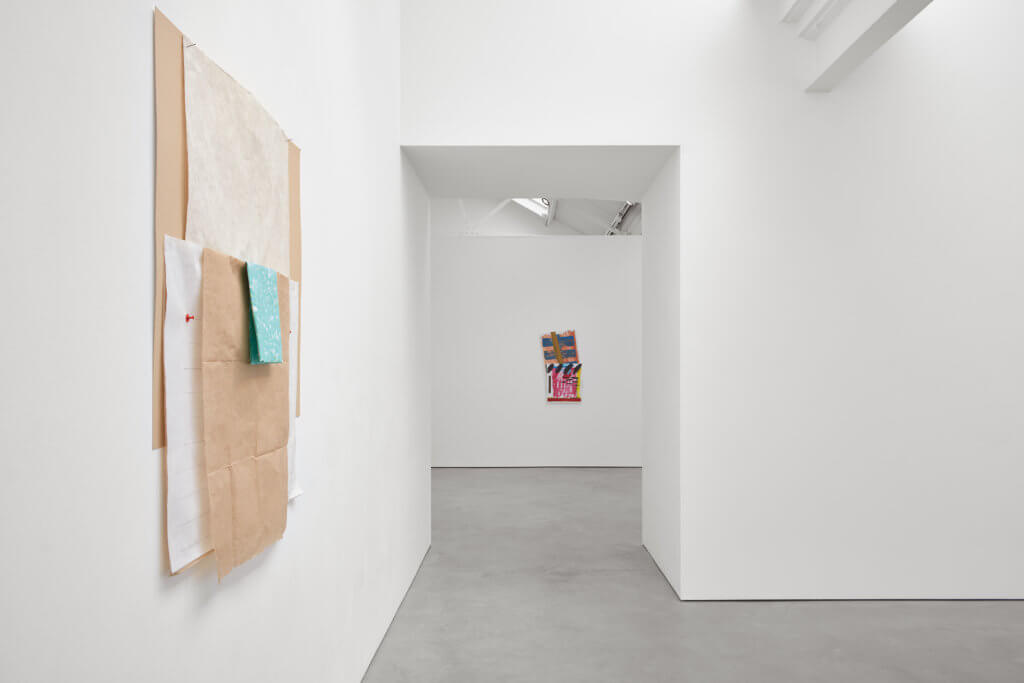
Courtesy Stuart Shave/Modern Art, London
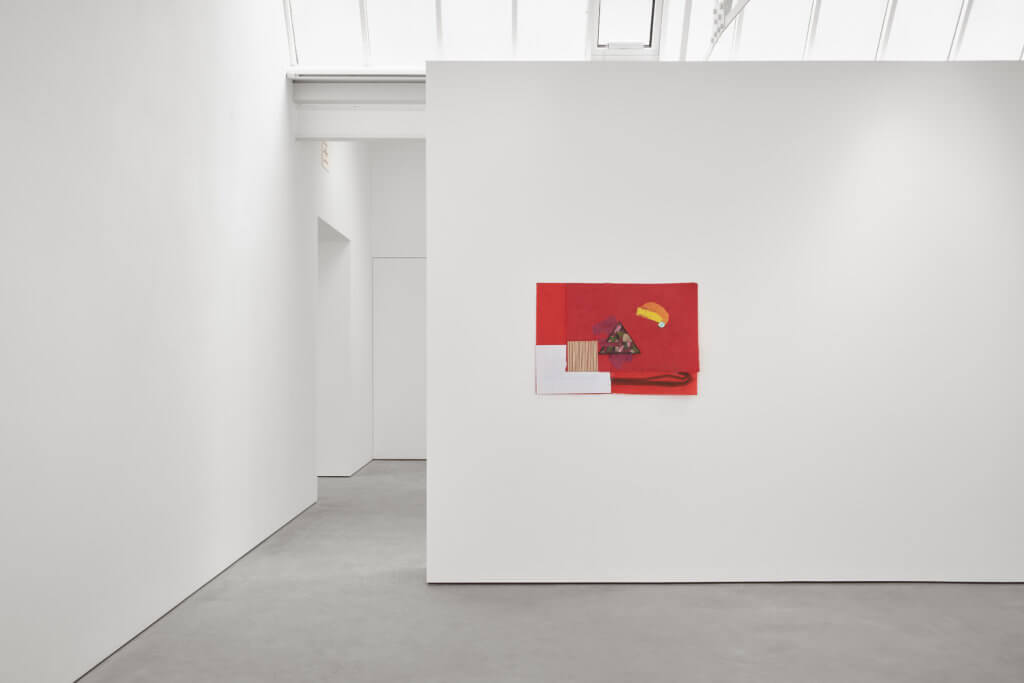
Courtesy Stuart Shave/Modern Art, London

